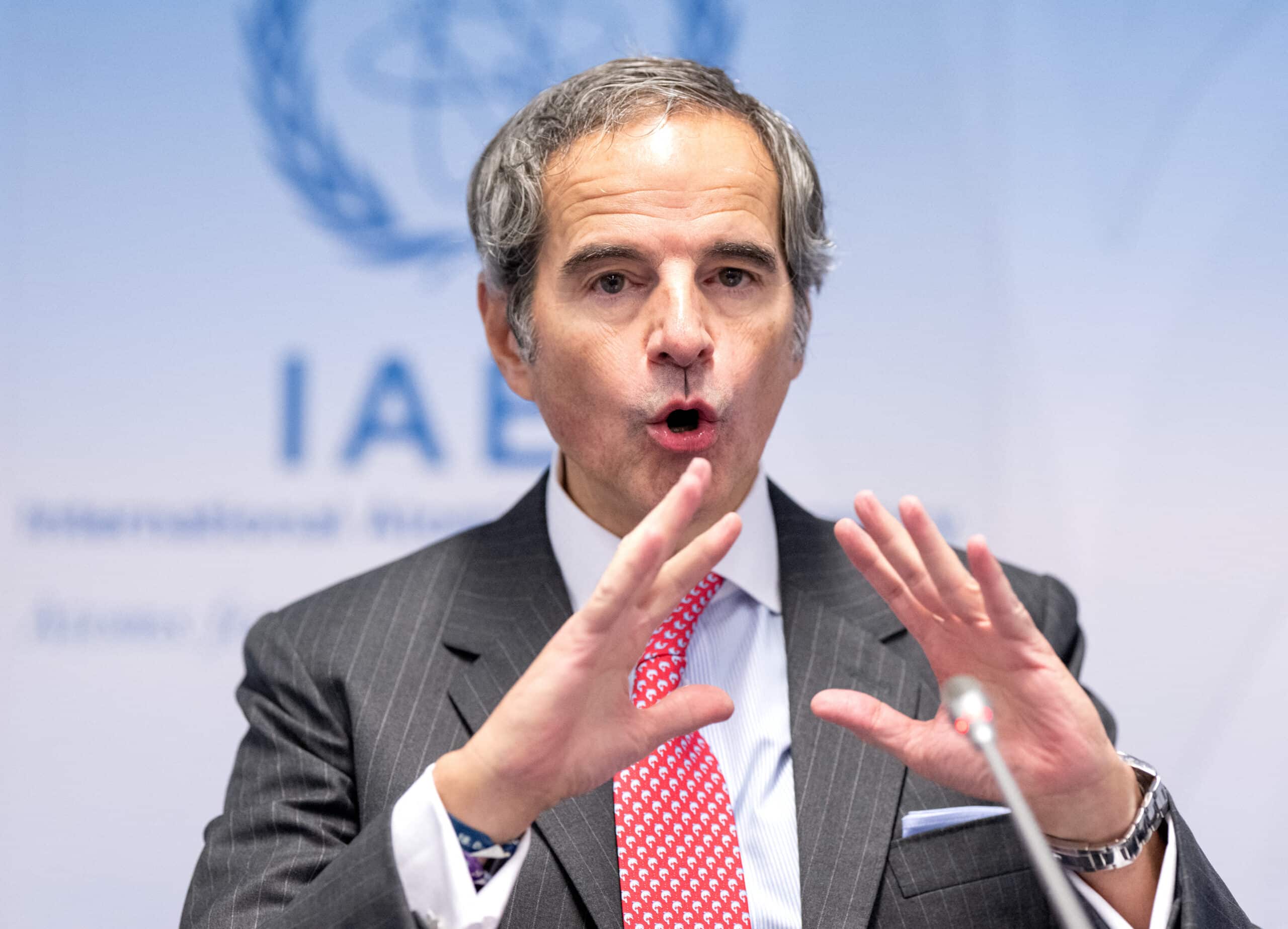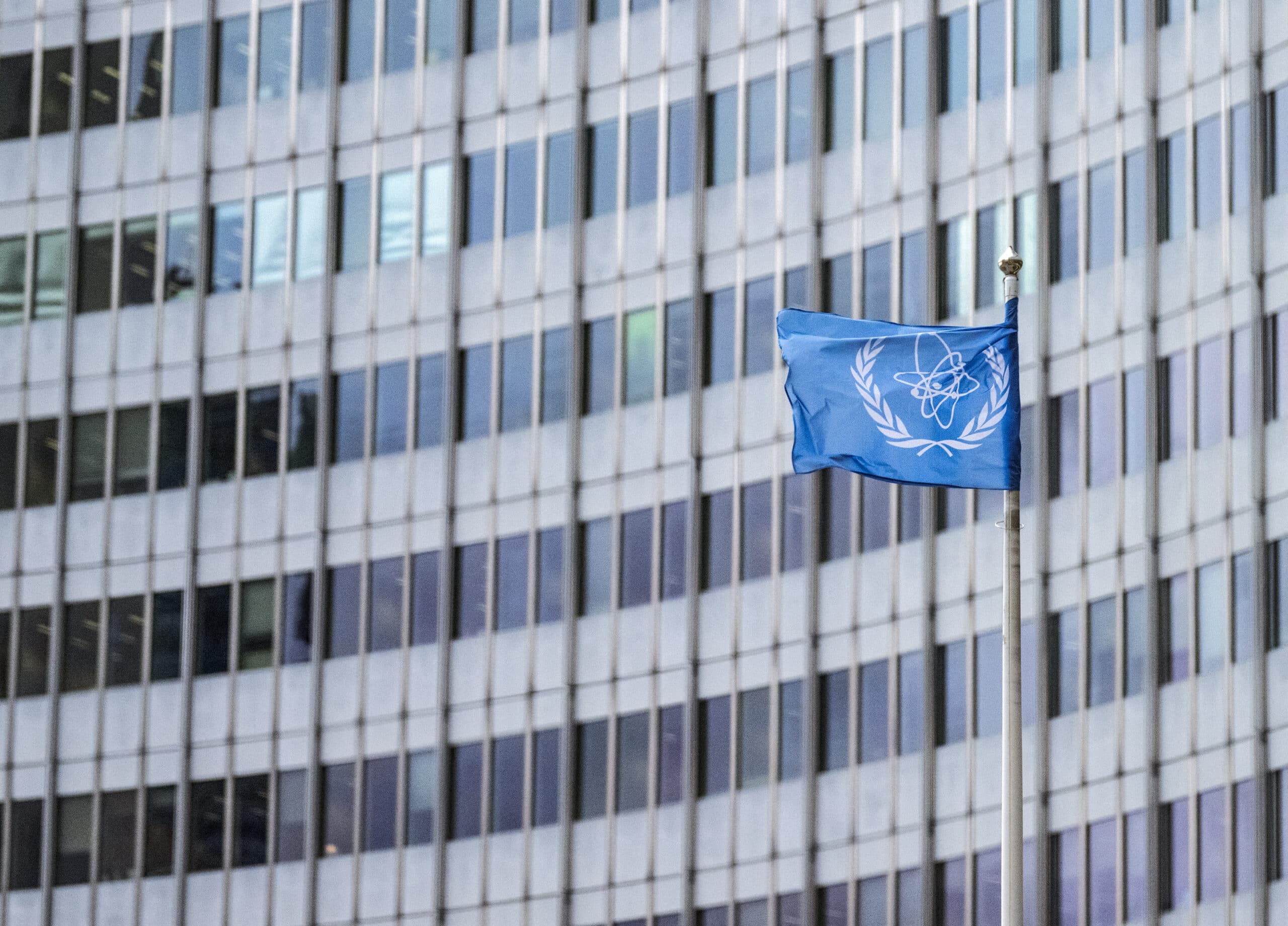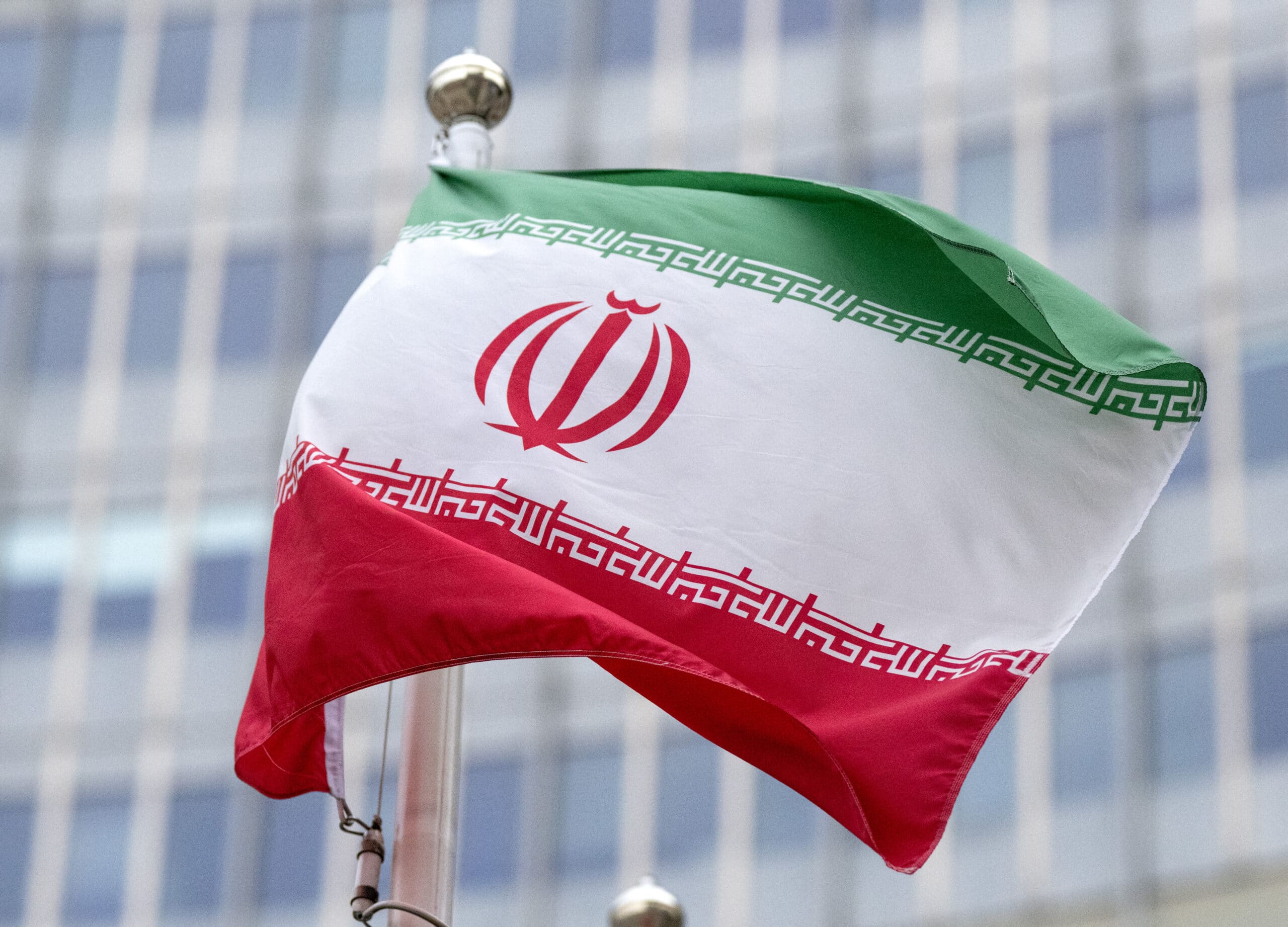
Rafael Grossi, Director Common of the Worldwide Atomic Vitality Company (IAEA) speaks to journalists throughout his press convention after the IAEA’s Board of Governors assembly on the company’s headquarters in Vienna, Austria on November 20, 2024. – European powers and the US have submitted a decision censuring Iran for its poor cooperation with the UN nuclear watchdog, diplomats informed Agence France-Presse, as Tehran warned of a “proportionate” response if it passes. (Picture by Joe Klamar / Agence France-Presse)
VIENNA, Austria — The UN nuclear watchdog’s board of governors handed a decision chiding Iran’s poor cooperation with the company nuclear after hours of heated exchanges, diplomats informed Agence France-Presse late on Thursday, a transfer Tehran referred to as “politically motivated.”
The censure movement introduced by Britain, France, Germany, and the US on the 35-nation board of the Worldwide Atomic Vitality Company (IAEA) follows an analogous one in June.
However it comes as tensions run excessive over Iran’s atomic program, with critics fearing that Tehran is trying to develop a nuclear weapon – a declare the Islamic Republic has repeatedly denied.
The decision – which China, Russia, and Burkina Faso voted in opposition to – was carried by 19 votes in favor, with 12 abstentions and Venezuela not collaborating, two diplomats informed Agence France-Presse.
Forward of the vote on Thursday night time, the US and its European allies sought to rally help for his or her decision by denouncing Iran.
Article continues after this commercial
In its nationwide assertion to the board, Washington stated that Tehran’s nuclear actions are “deeply troubling.”
Article continues after this commercial
READ: Iran will increase stockpile of close to weapons-grade uranium – UN
London, Paris, and Berlin in a joint assertion drew consideration to the “risk” Iran’s nuclear program posed “to worldwide safety,” stressing that it now had sufficient extremely enriched uranium for 4 nuclear weapons.
In a primary response after the vote, Iran’s ambassador to the IAEA, Mohsen Naziri Asl, informed Agence France-Presse that the decision was “politically motivated,” citing its “low help” in comparison with earlier censures.
Variations laid naked
The confidential decision seen by Agence France-Presse says it’s “important and pressing” for Iran to “act to meet its authorized obligations.”
The textual content additionally calls on Tehran to supply “technically credible explanations” for the presence of uranium particles discovered at two undeclared places in Iran.
Furthermore, Western powers are asking for a “complete report” to be issued by the IAEA on Iran’s nuclear efforts “on the newest” by spring 2025.
Since 2021, Tehran has considerably decreased its cooperation with the company by deactivating surveillance gadgets to watch the nuclear program and barring UN inspectors.
On the identical time, Iran has quickly ramped up its nuclear actions, together with by growing its stockpiles of enriched uranium.
That has heightened fears that Tehran may be searching for to develop a nuclear weapon, which it denies.

The IAEA flag flutters within the wind exterior of the IAEA headquarters throughout the Worldwide Atomic Vitality Company IAEA’s Board of Governors assembly on the company’s headquarters in Vienna, Austria, on November 20, 2024. – Western nations on November 20, 2024 formally submitted a brand new decision crucial of Iran on the Worldwide Atomic Vitality Company forward of its board assembly, diplomatic sources stated. (Picture by Joe Klamar / Agence France-Presse)
The decision comes simply as IAEA head Rafael Grossi returned from a visit to Tehran final week, the place he appeared to have made headway.
In the course of the go to, Iran agreed to an IAEA demand to cap its delicate inventory of close to weapons-grade uranium enriched as much as 60 p.c purity.
“This can be a concrete step in the proper course,” Grossi informed reporters Wednesday, saying it was “the primary time” Iran had made such a dedication because it began breaking away from its obligations beneath the nuclear deal.
The landmark 2015 deal – which curbed Iran’s nuclear program in change for sanctions reduction – fell aside three years later after the unilateral withdrawal by the US beneath then-president Donald Trump.
READ: UN nuclear watchdog chief cites ‘nice expectation’ in talks with Iran
In retaliation, Tehran started step by step rolling again a few of its commitments by growing its uranium stockpiles and enriching past the three.67 p.c purity – sufficient for nuclear energy stations – permitted beneath the deal.
Potential to ‘hurt efforts’ of UN nuclear watchdog chief
Though symbolic in nature at this stage, the censure movement is designed to lift diplomatic stress on Iran.
Iran’s International Minister Abbas Araghchi stated Thursday the censure “will disrupt” interactions with the company, however careworn Tehran would stay eager to cooperate.
Earlier, Araghchi had warned of a “proportionate” response by Iran if the board passes the decision.

The flag of Iran flutters within the wind exterior of the IAEA headquarters throughout the Worldwide Atomic Vitality Company IAEA’s Board of Governors assembly on the company’s headquarters in Vienna, Austria, on November 20, 2024. – Western nations on November 20, 2024 formally submitted a brand new decision crucial of Iran on the Worldwide Atomic Vitality Company forward of its board assembly, diplomatic sources stated. (Picture by Joe Klamar / Agence France-Presse)
In response to Heloise Fayet, a researcher on the French Institute of Worldwide Relations, the decision has the potential to “hurt Rafael Grossi’s efforts.”
“However Western powers are pissed off by the shortage of effectiveness of his diplomatic maneuvers and are in search of firmer options,” she informed Agence France-Presse.
On Wednesday, Grossi stated he might “not exclude” that Iran’s dedication to cap enrichment would possibly falter “on account of additional developments.”
International coverage professional Rahman Ghahremanpour stated Tehran would possibly retaliate to the brand new censure by “growing the enrichment ranges.”
However he doesn’t count on any drastic “strategic measures” as Iran doesn’t wish to “worsen tensions” earlier than Trump returns to the White Home.














:no_upscale()/cdn.vox-cdn.com/uploads/chorus_asset/file/25745224/FG3A_for_the_Boston_Celtics__during_CLE_vs_BOS___11_19_2024_.png?w=120&resize=120,86&ssl=1)